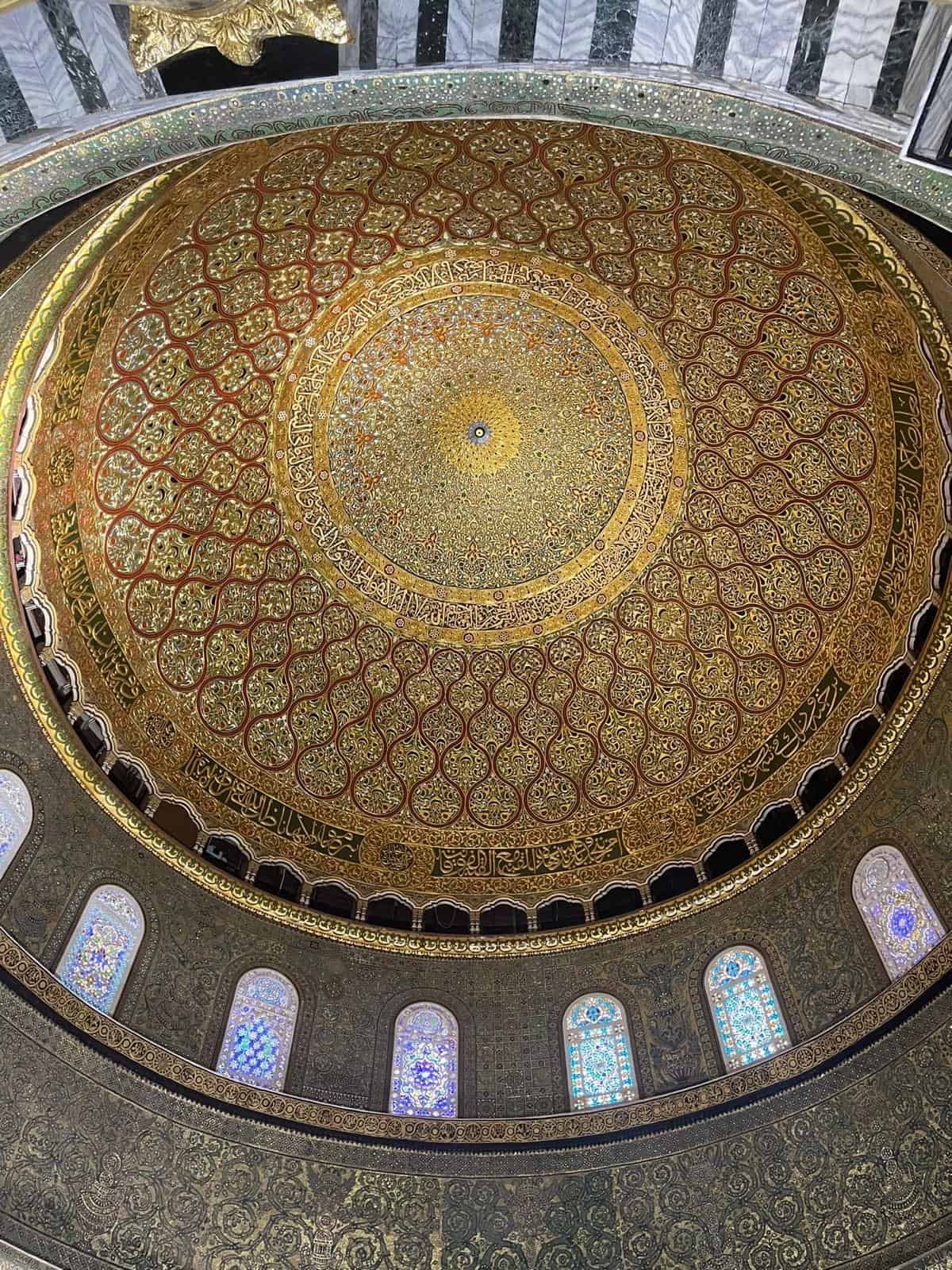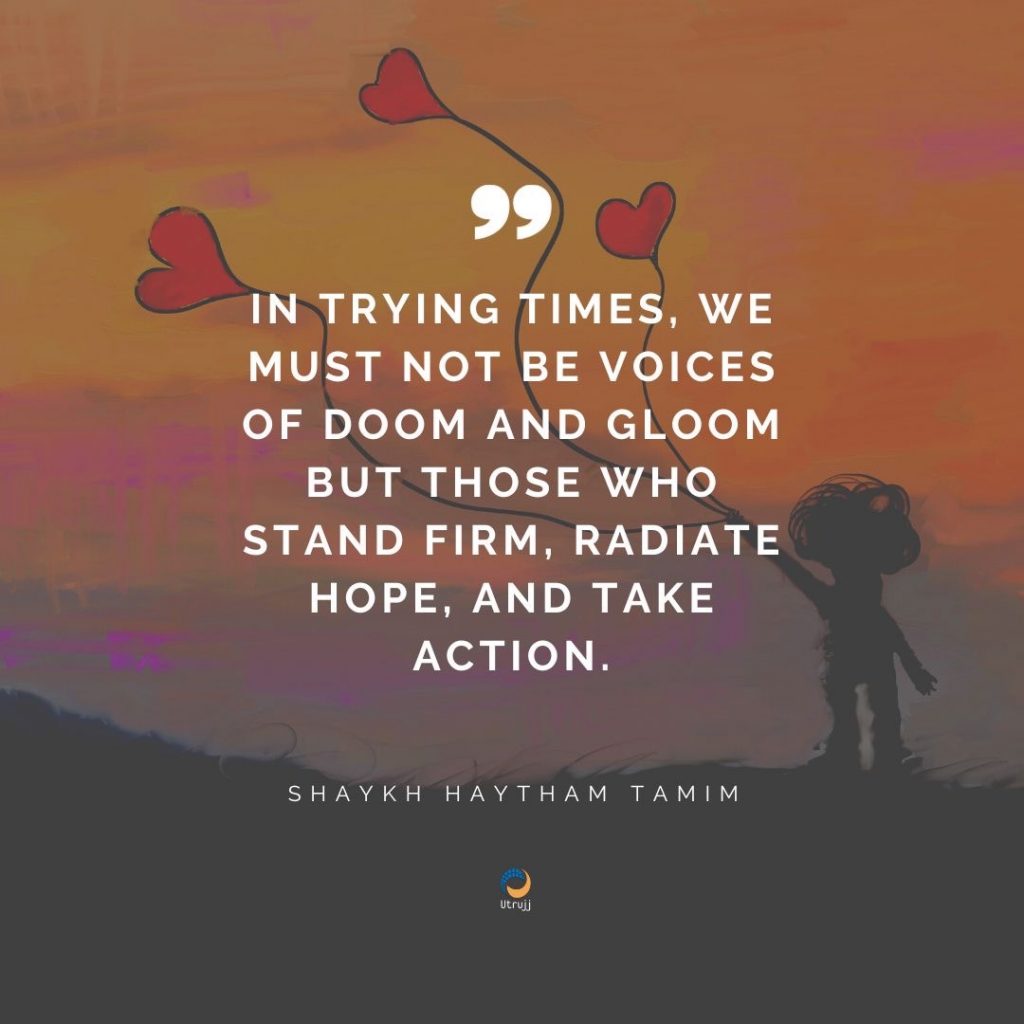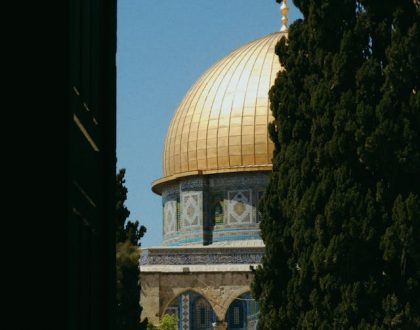Optimism in the midst of adversity

The Battle of the Trench (Ghazwat Al-Ahzab) took place five years after the migration of the believers to Madinah. It was one of the significant military campaigns in early Islamic history. An army ten thousand strong came to attack the believers who were just three thousand. The battle lasted for about thirty-three days, during which the believers were under siege. When the situation became difficult and intense for the Muslims. Allah Almighty has described their overwhelming fear and anxiety in the Quran:
یَـٰۤأَیُّهَا ٱلَّذِینَ ءَامَنُوا۟ ٱذۡكُرُوا۟ نِعۡمَةَ ٱللَّهِ عَلَیۡكُمۡ إِذۡ جَاۤءَتۡكُمۡ جُنُودࣱ
فَأَرۡسَلۡنَا عَلَیۡهِمۡ رِیحࣰا وَجُنُودࣰا لَّمۡ تَرَوۡهَاۚ وَكَانَ ٱللَّهُ بِمَا تَعۡمَلُونَ بَصِیرًا
O you who believe, remember Allah’s favour to you, when the forces came upon you, and We sent upon them a wind, and the forces (of angels) you did not see. Allah is watchful of whatever you do. [Al-Ahzab, 33:9]
إِذۡ جَاۤءُوكُم مِّن فَوۡقِكُمۡ وَمِنۡ أَسۡفَلَ مِنكُمۡ وَإِذۡ زَاغَتِ ٱلۡأَبۡصَـٰرُ
وَبَلَغَتِ ٱلۡقُلُوبُ ٱلۡحَنَاجِرَ وَتَظُنُّونَ بِٱللَّهِ ٱلظُّنُونَا۠
(Recall) when they came upon you from above you and from below you, and when the eyes were distracted, and the hearts reached the throats, and you were thinking about Allah all sorts of thoughts. [Al-Ahzab, 33:10]
هُنَالِكَ ٱبۡتُلِیَ ٱلۡمُؤۡمِنُونَ وَزُلۡزِلُوا۟ زِلۡزَالࣰا شَدِیدࣰا
There the believers were sorely tested and deeply shaken. [Al-Ahzab, 33:11]
Note that the opening of these verses which describe the intense feelings of terror are preceded by Allah Almighty saying ‘Remember Allah’s favour to you’. This shows optimism in the midst of intense turmoil and in the face of adversity.
The Prophet (peace be upon him) asked the men to dig a trench. Its length according to Dr Shawki Abu Khalil in his book “Atlas of the Prophet’s Biography,” was approximately 5,544 metres, with an average width of 4.62 metres and an average depth of 3.23 metres. It took around 6 to 30 days to dig. It posed a further challenge to the believers. When they came across a boulder that seemed immoveable, the Companions turned to the Prophet (peace be upon him) for a solution.
Al-Bara’ bin Azib (may Allah be pleased with him) narrated:
“When the Prophet of Allah (peace be upon him) ordered us to dig the trench, we came across a large rock in one part of the trench that our tools couldn’t break. We complained about this to the Prophet, and he came over, took an axe, and said: ‘In the name of Allah.’ He struck it, and a third of the rock broke. Then he said: ‘Allahu Akbar, I have been given the keys to the treasures of the Roman Empire.’ He struck the rock again, and another third broke, saying: ‘Allahu Akbar, I have been given the keys to the treasures of Persia.’ Finally, he struck it a third time, and the remaining piece of the rock broke. He said: ‘In the name of Allah,’ and then he declared: ‘Allahu Akbar, I have been given the keys to the treasures of Yemen. By Allah, I can see the gates of Sana’a from where I am standing now.'” [Nasa’i, Bayhaqi]
See the bigger picture and spread optimism
The Prophet (peace be upon him) spread optimism among them. He showed us that we should not be consumed by the immediate problem, but should look at the bigger picture and the long term outcomes. We should look at what will be achieved afterwards. He assured the believers that they would ultimately emerge victorious, and Islam would not only prevail but also extend its influence far beyond Madinah, where they were fighting to preserve their existence, and would surpass mighty empires – a vision that provided them with hope and motivation.
It is when we lose hope that we become weak
Ibn Umar (may Allah be pleased with him) reported that the Messenger of Allah (peace be upon him) said:
“The nations are about to call each other and set upon you, just as diners set upon food.” It was said: “Will it be because of our small number that day?” He said:
“Rather, on that day you will be many, buts you will be like foam, like the foam on the river. And Allah will remove the fear of you from the hearts of your enemies and will throw wahn (weakness) into your hearts.” Someone said: “O Messenger of Allah! What is wahn?” He said: “Love of the world and the hatred for death.” [Abu Dawood]
In Surat al Imran when the believes felt the humiliation of defeat at Uhud Allah encouraged them to be strong and hopefully stating:
وَلَا تَهِنُوا۟ وَلَا تَحْزَنُوا۟ وَأَنتُمُ ٱلْأَعْلَوْنَ إِن كُنتُم مُّؤْمِنِينَ
So do not weaken and do not grieve, and you will be superior if you are [true] believers.
إِن يَمْسَسْكُمْ قَرْحٌۭ فَقَدْ مَسَّ ٱلْقَوْمَ قَرْحٌۭ مِّثْلُهُۥ ۚ وَتِلْكَ ٱلْأَيَّامُ نُدَاوِلُهَا بَيْنَ ٱلنَّاسِ وَلِيَعْلَمَ ٱللَّهُ ٱلَّذِينَ ءَامَنُوا۟ وَيَتَّخِذَ مِنكُمْ شُهَدَآءَ ۗ وَٱللَّهُ لَا يُحِبُّ ٱلظَّـٰلِمِينَ
If you have suffered injuries ˹at Uḥud˺, they suffered similarly ˹at Badr˺. We alternate these days ˹of victory and defeat˺ among people so that Allah may reveal the ˹true˺ believers, choose martyrs from among you—and Allah does not like the wrongdoers—
وَلِيُمَحِّصَ ٱللَّهُ ٱلَّذِينَ ءَامَنُوا۟ وَيَمْحَقَ ٱلْكَـٰفِرِينَ
and distinguish the ˹true˺ believers and destroy the disbelievers.
أَمْ حَسِبْتُمْ أَن تَدْخُلُوا۟ ٱلْجَنَّةَ وَلَمَّا يَعْلَمِ ٱللَّهُ ٱلَّذِينَ جَـٰهَدُوا۟ مِنكُمْ وَيَعْلَمَ ٱلصَّـٰبِرِينَ
Do you think you will enter Paradise without Allah proving which of you ˹truly˺ struggled ˹for His cause˺ and patiently endured? [3:139-142]
Be the one who spreads hope
While current events are filling us with horror and deep distress, the Quran reminds us to maintain an optimistic outlook. Even amidst challenges, we should seek the postives. The plight of the Palestinians has now captured the world’s attention, shifting from the shadows into the global spotlight.
For years, their suffering had been buried in the drawers of those in power, but today it resonates in every household. People who were once unaware are now learning about the occupation and the rights of the oppressed, and some are turning to Islam. This widespread awareness is a change we couldn’t have achieved ourselves.

Be active in the pursuit of justice
In these trying times, we must stand firm, radiate hope, and take action. Let us earnestly make supplications and recite the Qunut in our prayers. It’s worth noting that the Prophet (peace be upon him) recited the Qunut in every prayer for a month, during a calamity that fell the believers and a large number of them were killed by their enemies. He beseeched Allah for victory and support against their oppressors. He made the dua:
“اللَّهُمَّ مُنْزِلَ الكِتَابِ، سَرِيعَ الحِسَابِ، اللَّهُمَّ اهْزِمِ الأحْزَابَ، اللَّهُمَّ اهْزِمْهُمْ وزَلْزِلْهم”
“Allah, the Revealer of the Book, Swift in account, defeat the Confederates. O Allah, defeat them and shake them.” [Bukhari]
In the face of adversity, remember that Allah answered the Prophet’s (peace be upon him) supplication by sending a powerful wind that dispersed the Confederates, striking fear into their hearts, ultimately leading to their defeat.
Trust Allah
Maintain trust (tawakkul) that things will improve, and trust in Allah’s plan. It is essential to spread hope as a community. Allah has cautioned us against two kinds of people – hypocrites, who are abundant in the international community, and those who spread negativity. Let’s be mindful not to unintentionally contribute to the latter. Instead, let’s be beacons of hope.
Be United
Now is the time to put aside our differences and unite our forces, forming alliances with those who still possess compassion and humanity. We must distance ourselves from those who have lost their humanity. The Battle of Ahzab teaches us the value of unity in times of adversity. History remembers only those with honour, while hypocrites are left in the margins.
Wes ask Allah to include us among those who support and defend the oppressed. Ameen.
Shaykh Haytham Tamim 3rd November 2023
Palestine the Islamic perspective
Recite the Du’a Qunut in times of calamity
- Inspirational women in Islam
- The forces of Allah and the fate of the falsifiers
- Climbing the stairs: How to continue your spiritual journey post-Ramadan
- How Allah strengthens the hearts of believers
- Why should you follow up one good action with another one?
Recommended Posts

Inspirational women in Islam
May 01, 2024

The forces of Allah and the fate of the falsifiers
April 26, 2024

How Allah strengthens the hearts of believers
April 19, 2024
